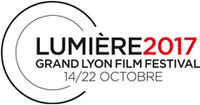WONG KAR-WAI
Lumière Award 2017
PostED ON FRIDAY, OCTOBER 20, 2017
Hong Kong filmmaker Wong Kar-wai receives the 2017 Lumière Award for his poetic, refined and sensual cinema, both modern and timeless, at a ceremony tonight in the presence of many guests, followed by the screening of Fallen Angels.
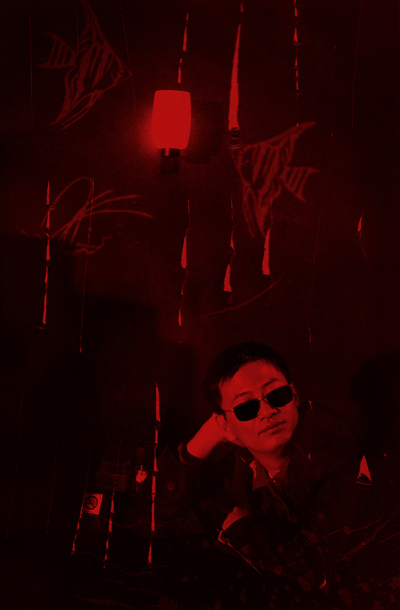
THE MAGIC OF WKW
Frankly, we did not see it coming. In early 1995, when Chungking Express's Parisian screenings began, few people knew who this 36-year-old Hong Kong filmmaker was. His first film, As Tears Go By, had been politely received at La Semaine Critique, a parallel event during the Cannes Film Festival, in 1988. His second film, Days of Being Wild, was screened anonymously at the Forum, the smallest section of the Berlin Festival in 1991. None of them were released in France.
Chungking Express still divides us: Are these slow-motion-then accelerated scenes, these fauvist images, not the very definition of mannerism, the cinema of the bygone clip era? On the other hand, some moviegoers seem to be seduced by the sensualist power of the movie, by the desperate romanticism of star-crossed loves in the Hong Kong metropolis. One also cannot remain immune to the stunning beauty of the actors (Tony Leung, who has carried each film from the beginning) and the actresses (Brigitte Lin, Faye Wong) who inhabit his films… While we ponder the decline of European stars, even Hollywood stars, the Chinese star-system of the cinema and "canto pop," give off an undeniable charge of glamour.
In 2000, the triumph of In the Mood for Love, which crowns Tony Leung with a Best Actor award in Cannes, changes the situation. The music by Shigeru Umebayashi, the dresses adorned by Maggie Cheung, the delicacy of the renunciation of love - bewitched a million viewers, in France alone. Wong Kar-wai had asserted himself as a total creator: he had understood before others that a film, besides being a work to be tasted in the cinema, must be deeply entrenched in the lives of those who watch. It is also an art of living.
Later, there will be pure splendor in 2046, an American stroll, My Blueberry Nights, kung-fu as an abstraction in The Grandmaster. A permanent quest for beauty and emotion. The vision of these films is dazzling. What lingers later is also powerful: a tenacious nostalgia, the memory of the "wild years," when we discovered the faraway dream of Shanghai of the past and Hong Kong whirling with excitement before its handover to China. A country of cinema where it is good, forever, to belong.
Adrien Dufourquet
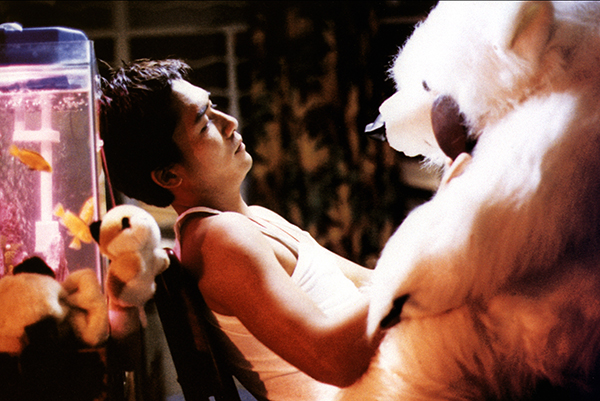
AN ALLUSIVE HONG KONG
When Wong Kar-wai, born in Shanghai, arrives in Hong Kong in 1963, he is five years old. The ex-British colony, symbolic island of exile, features in nearly all the filmmaker's movies, and his work seems to draw pieces of a puzzle that will eventually fit together. The "door of incense" has transformed into Asian Manhattan. Wong Kar-wai's films, like the experience of the inhabitants of this piece of land surrounded by the Sea of China, oscillate between very distinct periods: that of waiting, pre-1997, the date of the planned handover of Hong Kong from the British colony to China, and the post-colonial period, between 1997 and 2046, a comfort zone for the people of Hong Kong, assured of a status until this deadline. Nobody knows exactly what 2046 will bring. Omnipresent for Wong Kar-wai, Hong Kong is suggested more than it is seen. It is often a city of memory: in Days of Being Wild (1990), the mambo refers to a sixties childhood. The constant reference to the pendulum suggests that time stretches, like when the Hong Kong inhabitants didn’t know what the post-colonial life had in store for them.
In the 1990s, uncertainty rose, and Wong Kar-wai's cinema depicted a reassuring Hong Kong , where anguish of what the future held was replaced by a nostalgia for the past.
In the romantic Chungking Express (1994), the pineapple cans display their expiration date. In Happy Together (1997), a more worrisome date looms; it is filmed just before the handing over to China, so they want to leave the city. For fear of what 1997 will bring, the protagonists desert Hong Kong for Argentina. Everyone wants to flee, yet the transition goes smoothly. A new cycle, more serene, places the cursor in 2046. In the Mood for Love (2000) is shot right after the handing over in 1998, but the story takes place in the early 1960s. Wong Kar-wai remembers his memories as a Shanghai boy, who moves to Hong Kong with his mother to flee the future Cultural Revolution. The images of the streets seem extracted from his memory and everything alludes to his childhood: songs played on the radio, the packed dwelling buildings of this post-immigration era, marked by the housing crisis. 2046 is a reference of the present, a room number.
2046 (2004) is the culmination of the films that preceded it; Wong Kar-wai briefly superimposes the city of 2046, a futuristic vision in synthetic images, over the city of nostalgic remembrance. Then everything comes to a standstill. Just like 2046?
Charlotte Pavard
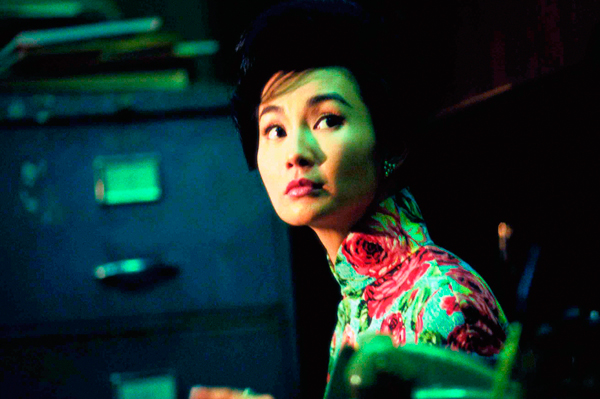
THE ART OF MUSICAL COLLAGE
Thanks to the music, the director mixes atmospheres, moving from a Latin tune to rock, opera, tango or Cantonese pop, mixing original music and additional music to create a singular and moving poetic universe on par with the films’ melancholy. A special alchemy links the music to the images in his films. The soundtrack spreads an atmosphere, imprints a rhythm, conveys feelings or the vanishing of memories... It also expresses the moods of the characters. In each film, images and music blend harmoniously; they intertwine and complement each other to concoct an intense emotional journey. Happy Together, which takes place partially in Buenos Aires, is punctuated by the song Cucurrucucu Paloma by Caetano Veloso, which Pedro Almodóvar also used in Talk to Her. A Mexican song, played by a Brazilian, featured in the film of a Hong Kong filmmaker, a movie shot in Argentina… this is the kind of mix that Wong Kar-wai is fond of. But it is the beautiful and heart-rending music of the Argentine Astor Piazzola, which pervades Happy Together. Tony Leung's wandering, loneliness, and gloominess are manifested by the lyricism of tango, full of nostalgia and the feeling of exile… If Cole's sensual and sweet voice brings a special charm to the soundtrack of In the Mood for Love, it is because it is intimately linked to the memories of a Hong Kong childhood in the filmmaker’s mind. The theme, composed by Shigeru Umebayashi for In the Mood for Love - whose soundtrack would become a golden disc in France – powerfully expresses the melancholy of the two protagonists who meander, two fleeting and solitary figures in the Hong Kong night… The sunny tune of California Dreaming by The Mamas And The Papas gleefully conveys the playful, tongue-in-cheek side and the desire of the character played by Faye Wong in Chungking Express... In 2046, Gong Li is associated with poetic and nostalgic excerpts from Umebayashi’s Polonaise. As for Zhang Ziyi, the melodies of Dean Martin, Connie Francis, the rhythms of rumba and cha-chach that accompany her scenes evoke the eroticism linked to her character. "I spent most of my childhood in movie theaters. As a result, the music and images marked me indelibly and simultaneously," claims Wong Kar-wai, who "bathes the in the music of films like a fish in the water.” For the director, music "speaks better than words", because a "script cannot say everything, and does not say the essential.” After all, "If one is able to say the inexpressible in a script, it means that person is a writer - and he might as well write a novel.”
Rébecca Frasquet
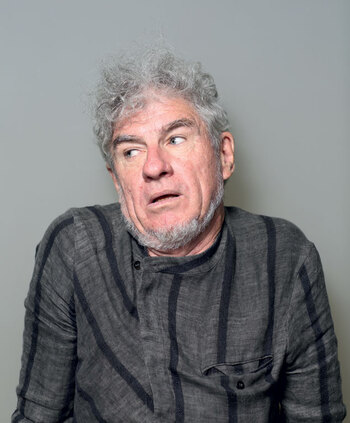
CHRISTOPHER DOYLE, CINEMATOGRAPHER AND POET
When Wong Kar-wai asks him, after a long and laborious 30-hour “day” of shooting, "Chris, did you do your best?" The cinematographer cannot sleep. Because Chris Doyle is an artist, and doing his best is his aim in life. Has he done his best? He tries, constantly. This is what emerges from the “chop suey” conversation (in English, French, and Chinese!) given on Thursday by the master, after the screening of an autobiographical film, The Wind, directed by a young Malaysian admirer, Tiong Guan Saw. Doyle is indivisible from the work of the Lumière Award 2017 laureate – the pair have collaborated on almost all of WKS’s films, from Days of Being Wild (1990) to 2046 (2004). A navigator, then director of photography who has been in prison four times, learns life and Chinese, and puts his suitcases down in the Hong Kong of the 1970s. Rebaptized “Du Ke Feng” (Like the wind) by his teacher, he oscillates between his Australian “self” and his Chinese “self.” Talking about Wong Kar-wai, Doyle admires everything from his “ability to capture the rhythm and energy of the city" to his method of working, founded on trust. "You have to like your director. Trust is everything, without it you cannot make a good movie." A relationship of trust he has also managed to build with Gus Van Sant, Jim Jarmusch and Alejandro Jodorowsky.
Charlotte Pavard

